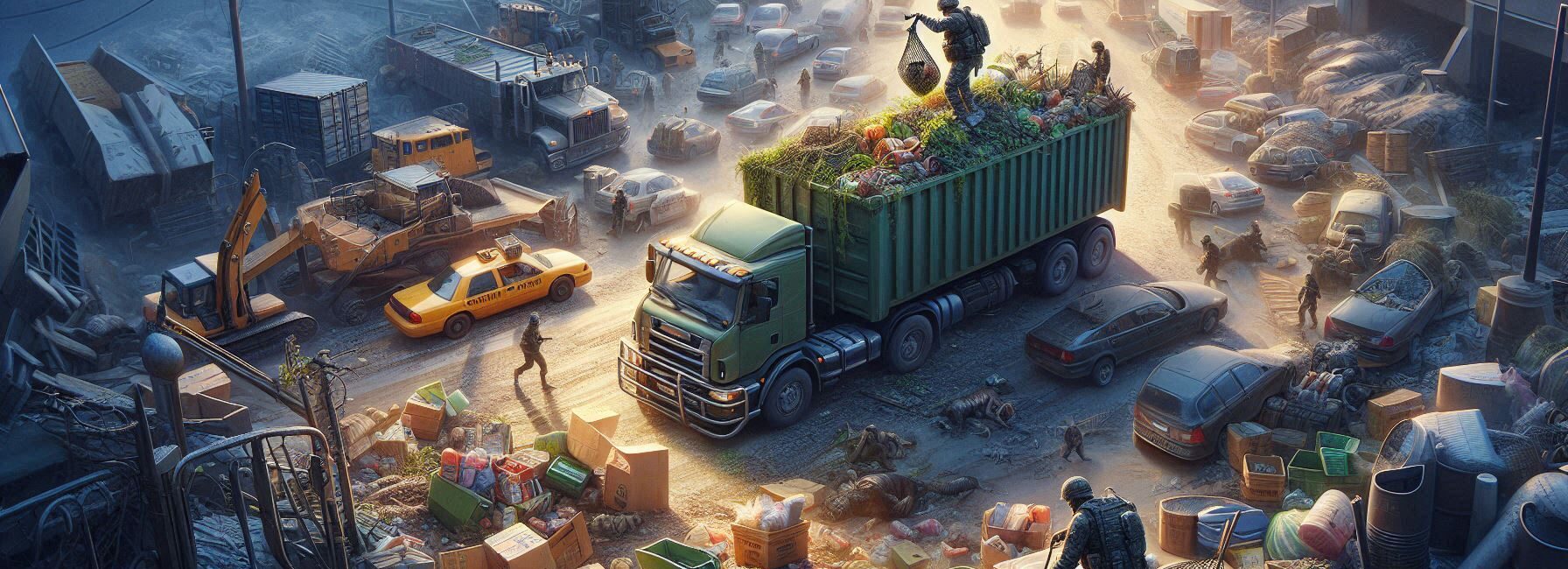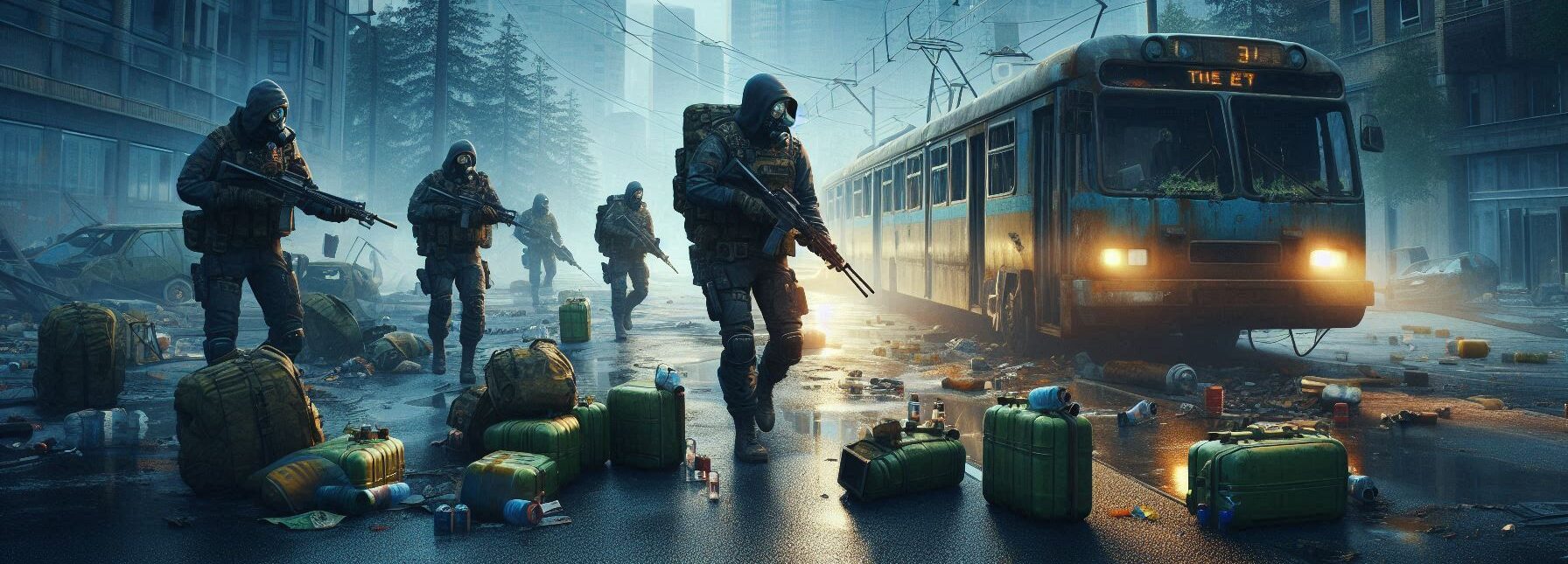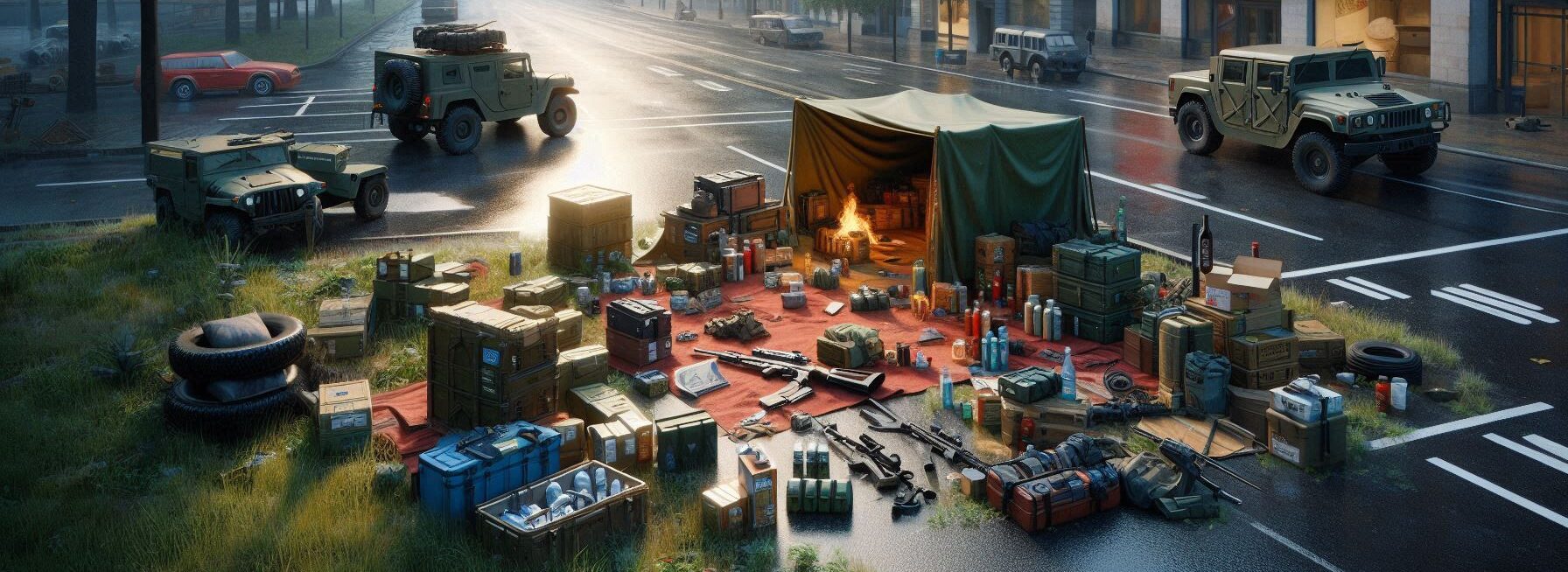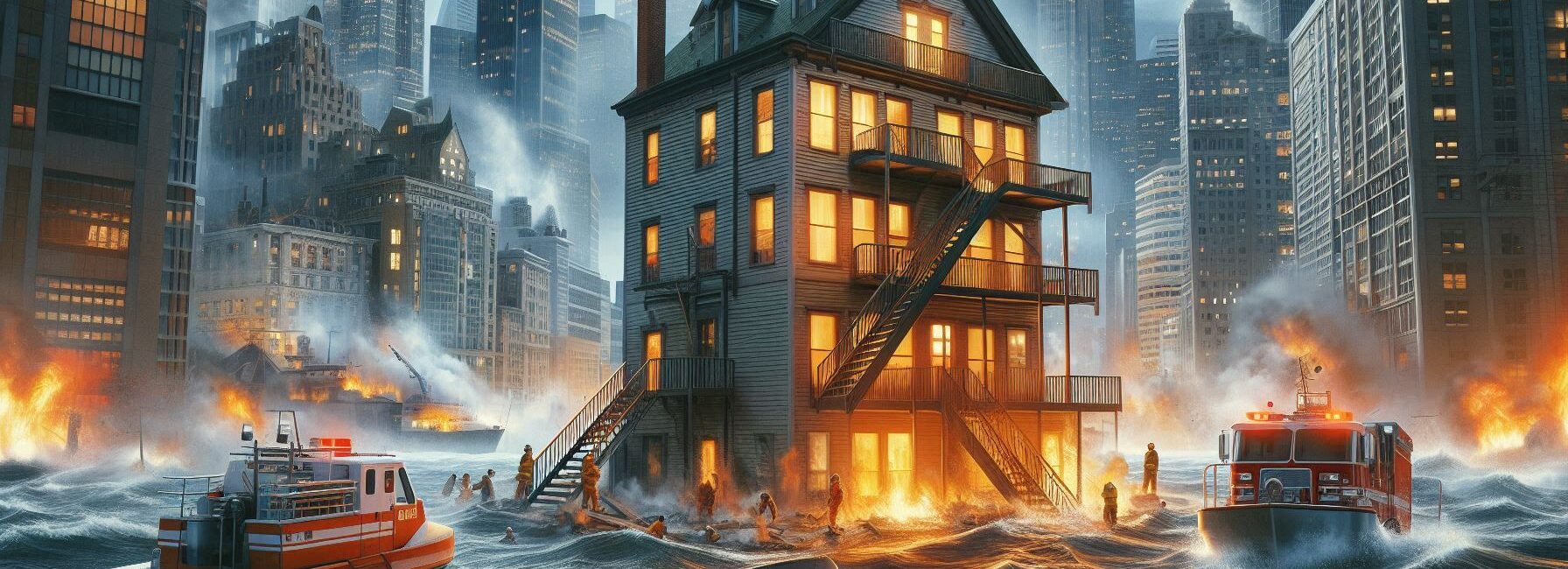Last Updated on November 1, 2025 by Kevin Collier

Top Takeaways and Key Concepts
- Set Up Handwashing Stations: Use a jug with a spigot, soap, and a catch bucket.
- Maintain Personal Hygiene: Use wet wipes, dry shampoo, and washcloths when water is scarce.
- Create Emergency Toilets: Line a bucket with a heavy-duty bag; add cornstarch and disinfectant after use.
- Purify Water: Boil for 10 minutes, use purification tablets, or add 2.5 tsp bleach per gallon.
- Dispose of Waste Properly: Use a sealed trash can with a tight-fitting lid; avoid digging holes.
Imagine if a disaster happens. The city is a mess, like a big snow globe that got too much shaking. You wonder how to stay clean as the world seems to be falling apart. It's a little too much.
Please Note: This post may contain affiliate links. If you click one of them, we may receive a commission at no extra cost to you. As an Amazon Associate, I earn from qualifying purchases.
Of course, staying alive is important. But let's face it. No one wants to smell like the gym socks they wore last week. That's not correct. How can you stay fresh when everything is a mess?
First, get some wipes. You know, the ones that are useful. They are like magic sheets that can clean your hands or face. You can wipe down whenever you feel dirty. You can carry around a small spa with you! Just make sure they won't hurt your skin. That's all.
Water is your best friend. If you’ve got a stash, yay! If not, find a clean source. You can use it for washing hands or even rinsing off if you can. Just remember, using a little goes a long way when there’s not much to spare.
Finding dry shampoo can be fun. It’s like a sprinkle of fairy dust for your hair. If you can’t find any, cornstarch works too. Sprinkle it on your roots and brush it out. Voila! Hair looks cleaner, and you feel ready to take on the chaos.
Don’t forget about teeth! If you’ve got a toothbrush and toothpaste, great. If not, chewing on some minty leaves can freshen your breath. It’s a little weird, but it works!
Keeping your area clean matters too. Look for a spot where you can set up a little hygiene station. Maybe have a bag for trash. Staying organized helps keep bad smells away.
If you run into some old clothes, use them wisely. You can change into something fresh, or if they’re too far gone, maybe use them for wipes or cleaning. That way, nothing goes to waste.
*** Shop for Survival Gear - Tools - Kits ***
Survival Gear - Bags and Backpacks - Knives - Boots/Footwear - Communication
Outdoor Cooking - Gloves - Hydration - Dry Boxes - Water Filtration Systems
Tents - Sleeping Bags - First Aid Kits - Multi-Tools - Flashlights - Fire Starters
Navigation - Survival Food - Night Vision - Headlamps - Stun Guns - Binoculars
Staying calm helps a lot. When you look good, you feel good. Even in chaos. Keeping a smile on your face helps too. Sometimes, a little humor can lighten things up.
You got this! Even when it feels rough, a little effort goes a long way. Just remember, personal hygiene matters, even in a disaster. Stay fresh, stay strong.
Water, Water Everywhere… Not a Drop to Drink
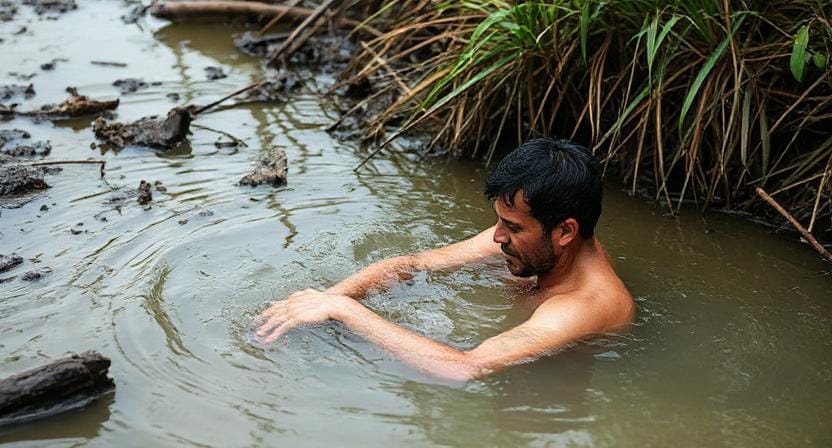
First things first: water is essential. In a disaster scenario, clean drinking water can become as rare as finding a parking spot at a concert. You might be thinking, “Can’t I just drink from that puddle?” Well, unless you enjoy playing Russian roulette with your stomach, I’d advise against it.
By the way, if you find yourself in such dire straits, look for sources like bottled water or any public facilities that might still be operational. If you're lucky enough to have access to running water (let's hope), make sure to purify it before taking a sip!
Boiling it is an effective method—just don’t get distracted by your neighbor's cat trying to scale your fence while you wait for the kettle.
And let’s see… if you do manage to secure clean water, use it wisely! Save some for washing hands after using makeshift toilets because no one wants to live in an episode of “Survivor: The Smelly Edition.”
Makeshift Toilets: A Necessary Evil
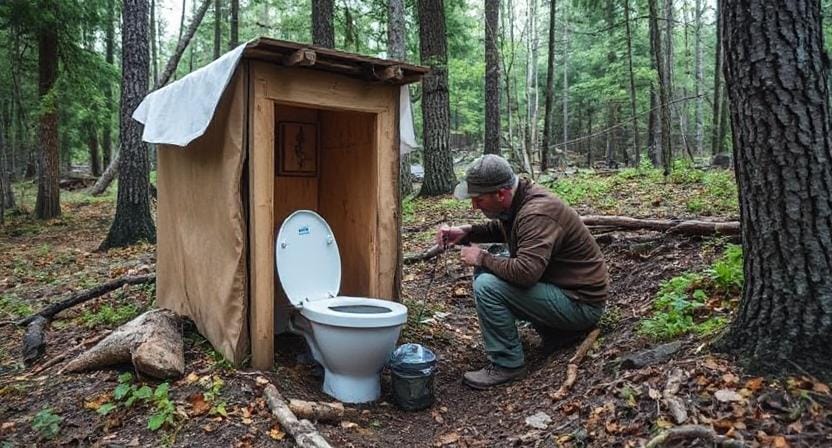
Ah yes, toilets—the throne rooms we take for granted until they become non-existent! When disaster strikes and plumbing fails, you may need to get creative. A bucket can serve as an excellent makeshift toilet—just remember to line it with trash bags unless you want your bathroom situation resembling something out of a horror movie.
To ensure sanitation, designate an area away from living spaces for these impromptu toilets. Trust me; nobody wants their morning coffee interrupted by the smell of yesterday’s beans mixed with whatever else was in there!
Speaking of which, always keep supplies nearby: toilet paper (if you've managed to stock up), hand sanitizer (because germs are now public enemy number one), and perhaps even some air freshener if you're feeling fancy. And let's face it; nothing says “I’m surviving” quite like having scented candles amidst chaos!
Keeping Clean Without Running Water

Now that we've tackled toilets let’s discuss cleaning ourselves without running water—because sometimes life throws curveballs faster than my dog chasing squirrels. Wet wipes are going to be your best friend here; they’re portable and require no rinsing!
Just don’t forget that they aren’t biodegradable—so stash them somewhere safe afterward instead of tossing them into nature.
If wipes aren't available—and honestly who knows what could happen next?—consider creating a sponge bath setup using whatever containers you can find around the house. Fill them with clean water (remember our earlier discussion) and use cloths or towels for scrubbing off dirt and grime.
Interestingly enough, if all else fails and you're feeling adventurous, try making soap from ash and fat found during cooking or bartering with neighbors who might have extra supplies lying around! Nothing screams resourceful survivor like DIY soap-making lessons learned during panic mode!
Food Safety in Uncertain Times
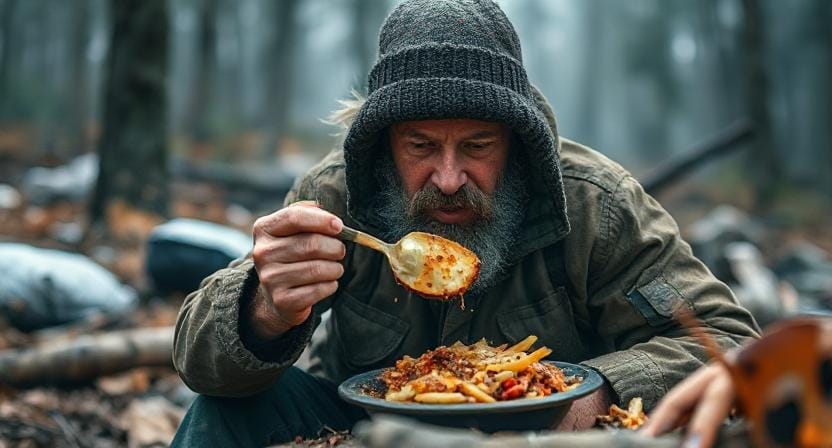
Food safety becomes crucial when refrigeration goes kaput after disasters hit cities harder than my uncle at Thanksgiving dinner. First rule? Don’t eat anything that smells questionable—even if it's been sitting on the counter looking sadder than my high school prom date.
Canned goods are usually safe since they have long shelf lives—but check those expiration dates! Also consider investing in cooler packs or ice substitutes if possible; keeping perishables cold extends their lifespan significantly.
Speaking of food storage strategies: try organizing items based on their perishability level so that everything doesn’t turn into one big science experiment gone wrong! Remember folks: moldy bread is not gourmet cuisine—it’s more akin to culinary horror!
Teamwork Makes the Dream Work
Finally—and honestly this part is important—don’t go solo unless absolutely necessary! Banding together with neighbors creates community support during tough times where everyone contributes skills toward maintaining hygiene standards effectively.
Sharing resources means pooling knowledge too—from someone who used camping skills back when life was normal (and less chaotic). Who knows? Your neighbor might just know how to set up rainwater collection systems better than anyone else on the block!
So knock on doors—or yell across yards—to ask others about their plans regarding sanitation efforts post-disaster because teamwork truly does make surviving feel less lonely (and more manageable).
Frequently Asked Questions
How can I wash my hands if running water is unavailable?
Use a container with a spigot, soap, and a bucket underneath to catch wastewater. Hand sanitizer and wipes are useful substitutes when water is extremely limited.
What can be used to maintain personal hygiene after a disaster?
Wet wipes, dry shampoo, washcloths, and minimal water sponge-baths can keep you clean until normal water access returns.
How do you safely create an emergency toilet?
Line a bucket with a heavy-duty bag, add absorbent material like cornstarch, and use disinfectant after each use, then seal the waste in a lidded trash container.
How should water be purified before using it?
Boil water 10 minutes, or use purification tablets, or disinfect with the recommended household bleach ratio of 2.5 teaspoons per gallon.
How do you properly dispose of sanitation waste?
Store waste in sealed containers or bags with tight-fitting lids until official disposal services return; avoid burying waste in contaminated urban soil.
What hygiene supplies should be prioritized?
Soap, wipes, hand sanitizer, trash bags, bleach, disinfectants, and simple oral care supplies like toothbrush and paste are high value in limited-resource conditions.
Why is sanitation so important after an urban disaster?
Improper hygiene increases disease risk, spreads pathogens quickly in dense populations, and strains limited medical resources.
Suggested Resources:
How To Prepare for an Urban Emergency
https://www.ready.gov/urban-emergency-preparedness
Sanitation Solutions After Disasters
https://www.unicef.org/sanitation-solutions-disasters
Emergency Preparedness Guide
https://www.redcross.org/get-help/how-to-prepare-for-emergencies.html

Kevin Collier is a seasoned survivalist and expert in prepping and homesteading, contributing to WiseSurvive.com. With a deep-rooted passion for self-sufficiency and outdoor survival skills, Kevin shares practical advice, strategies, and resources to help individuals prepare for any challenge. His informative articles cover a range of topics, from essential survival techniques to sustainable living practices, empowering readers to thrive in any situation. Whether you're a novice or a seasoned prepper, Kevin's insights will inspire you to take charge of your readiness and build resilience for the future.


